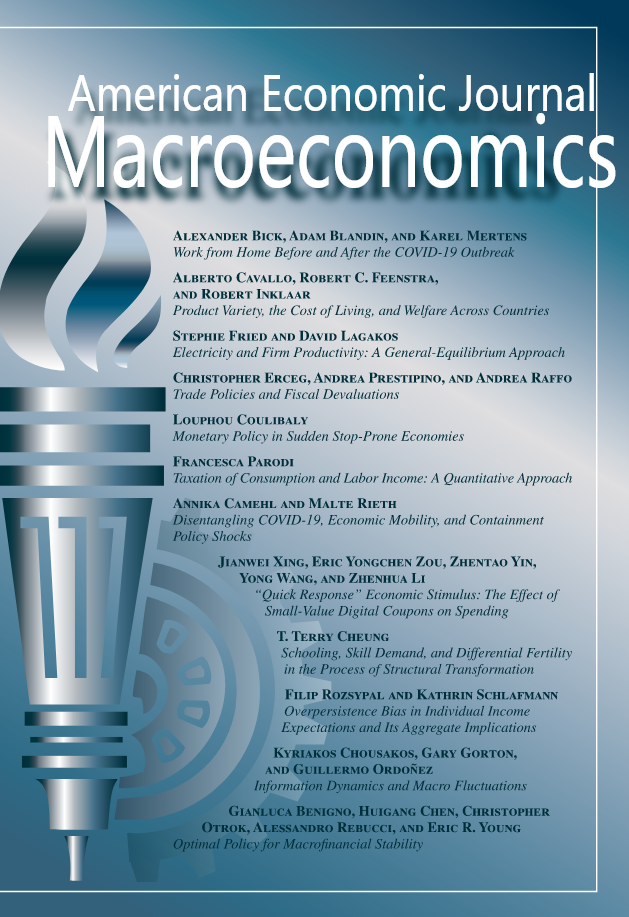消费异质性:微观驱动与宏观影响
IF 5.7
1区 经济学
Q1 ECONOMICS
引用次数: 1
摘要
我们记录了边际消费倾向(MPC)在不同家庭特征中的异质性,这与理解异质主体模型和货币政策传导有关。我们发现家庭流动财富与MPC之间存在很强的负相关关系。我们表明,家庭流动财富与我们所观察的其他家庭特征的MPC密切相关。我们使用了一种新的经验方法,克服了现有文献中发现的偏见来源,以及来自丹麦的行政数据,使我们能够识别异质行为。我们利用研究结果分析了丹麦和美国的货币政策传导机制。(jel d12, d31, e21, e43, e52, g51)本文章由计算机程序翻译,如有差异,请以英文原文为准。
Consumption Heterogeneity: Micro Drivers and Macro Implications
We document heterogeneity in the marginal propensity to consume (MPC) across household characteristics relevant to understanding heterogeneous agent models and monetary policy transmission. We find a strong negative relationship between household liquid wealth and MPC. We show that household liquid wealth predicts MPC closely for every other household characteristic we look at. We use a new empirical method that overcomes sources of bias found in the existing literature, along with administrative data from Denmark that allow us to identify heterogeneous behavior. We use our results to analyze monetary policy transmission mechanisms in both Denmark and the United States. (JEL D12, D31, E21, E43, E52, G51)
求助全文
通过发布文献求助,成功后即可免费获取论文全文。
去求助
来源期刊

American Economic Journal-Macroeconomics
ECONOMICS-
CiteScore
8.20
自引率
1.70%
发文量
58
期刊介绍:
American Economic Journal: Macroeconomics focuses on studies of aggregate fluctuations and growth, and the role of policy in that context. Such studies often borrow from and interact with research in other fields, such as monetary theory, industrial organization, finance, labor economics, political economy, public finance, international economics, and development economics. To the extent that they make a contribution to macroeconomics, papers in these fields are also welcome.
 求助内容:
求助内容: 应助结果提醒方式:
应助结果提醒方式:


